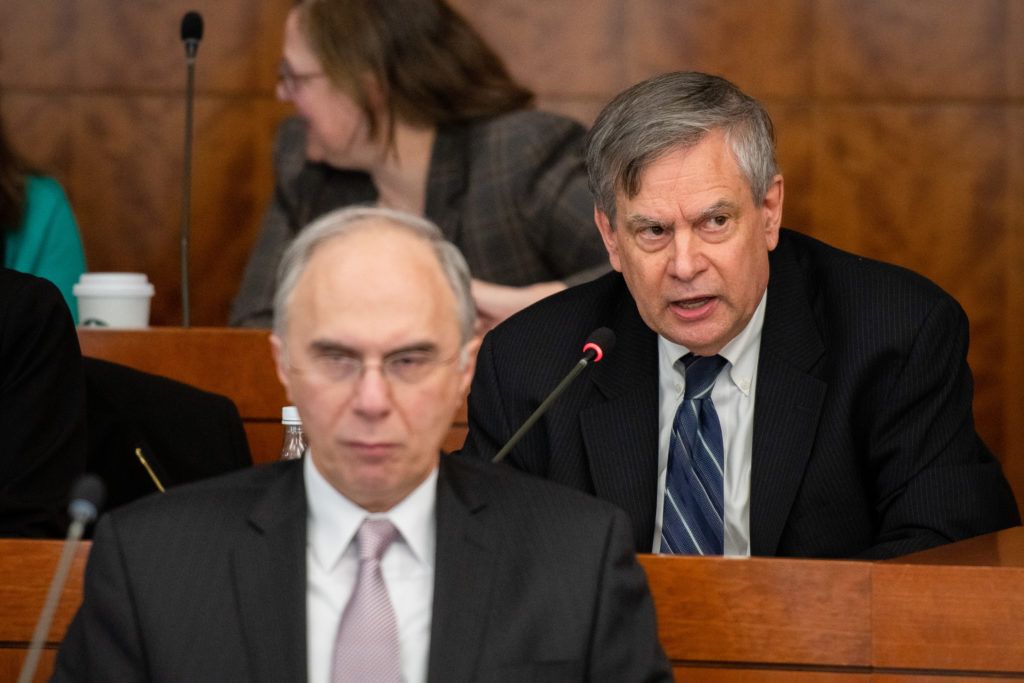The Faculty Senate tabled two resolutions proposing changes to the faculty code Friday after members said they did not have enough time to review the legislation.
The first resolution would have clarified the appointment and promotion process for specialized faculty, specified which faculty members are eligible for tenure and laid out rules for who can chair a search committee. The second would have updated procedures after a grievance filing and allowed schools to create committees to assist the provost in decanal reviews.
Some members of the senate said they did not have enough time to review the two measures, which were presented by the Professional Ethics and Academic Freedom Committee. But other members pushed for the senate to vote on the resolutions so the Board of Trustees would have been able to review the two resolutions at its February meeting.
In the end, the senate could not hit a supermajority to move forward on the legislation.
Philip Wirtz, a professor of decision sciences and psychology and the chair of the educational policy committee, suggested that the senate postpone discussion of the resolutions because faculty did not have enough time to understand the complexities of the policy.
“In one case, I was asked to schedule a town hall so we could discuss these more thoroughly, and there’s really no need for urgency or at least emergency on this,” he said.
Wirtz said the faculty code is an important document, and the resolutions explore tough issues. But he said he could guarantee that not all of the faculty – or even the senate – has had enough time to review the changes in 36 hours before the meeting.
“This is not the way the senate does business,” Wirtz said. “I would assert that this is too early, and I would ask that we should vote not to entertain these two resolutions today, that rather we entertain them at our next meeting in February.”
But Sylvia Marotta Walters, the chair of the Faculty Senate, said she supported putting the two resolutions on the agenda Friday.
“My motivation for that is, yes, this is about meeting the Board of Trustees agenda, but should we not even discuss them today?” Walters said.
She said that when the board meets next month, trustees will review the proposed resolutions without input from the senate.
University President Thomas LeBlanc said at the meeting that the code’s “glitch list” has been discussed for the past year, not just the past 36 hours.
“This time table was established at the beginning of the academic year, and these are complex matters that require discussion, and I get that – but let’s be clear, from the board’s point of view, there is no reason the senate has 36 hours on this,” he said.




